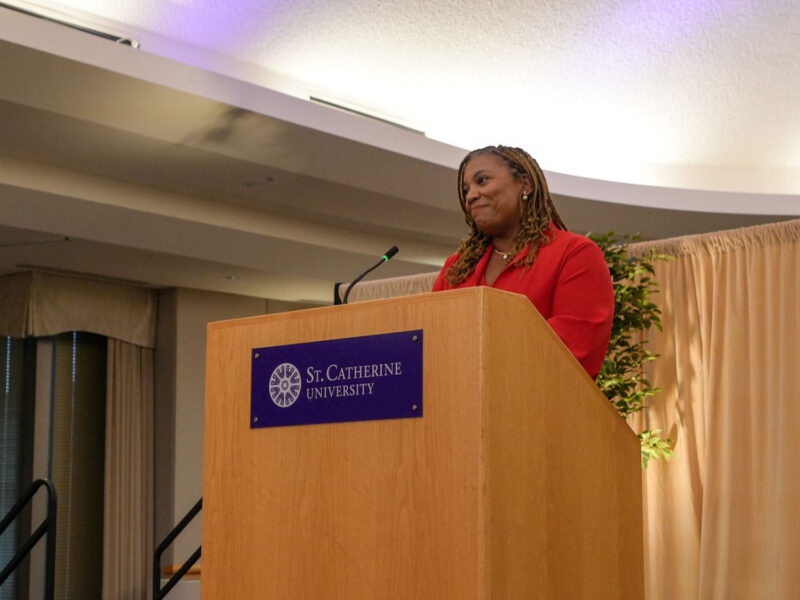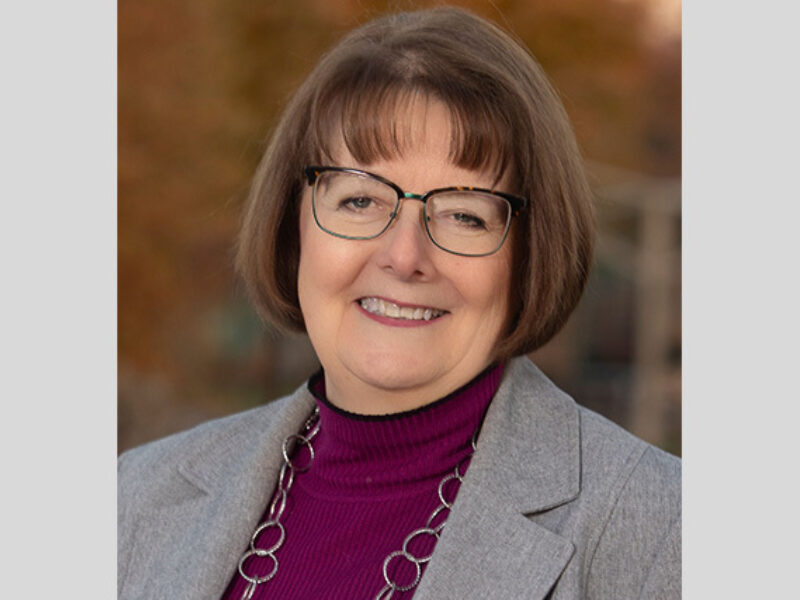Here are a few tips to help you talk to your clients about charitable giving.

By Mariah Brook, Director of Gift Planning
It’s never too early to ask your clients how philanthropy can fit into their overall goals.
Professional advisors who embrace philanthropic planning experience great success and growth in their practices. According to a study by U.S. Trust1, high net worth clients say knowing that an advisor has personal philanthropic experience and knowledge would factor into who they choose to work with and how it would enhance the advice provided.
Findings suggest that as an advisor or wealth manager, you have opportunities to have conversations that satisfy the more nuanced and broader needs of your clients’ philanthropic goals. In fact, one in four donors (26%) say their investment decisions align with their personal values due to conversations with their advisor or wealth manager.
The ability to facilitate a philanthropic conversation is just like any other skill – it can be developed and successfully incorporated into any practice.
A charitable planning conversation is different than other planning conversations. It’s more about personal goals than financial, and often pivots away from the usual tax and wealth planning focus and more toward personal connection and what drives individuals to give.
Importance of Having Personal Conversations About Giving
Having personal and often emotional conversations can seem strange at first, but after a bit of practice it becomes second nature and cements client relationships like no other.
Studies performed by U.S. Trust and the Indiana University Lilly Family School of Philanthropy reveal what high net worth clients want from their advisors when it comes to charitable planning. Their study on charitable conversations2 shows that most clients feel that philanthropic conversations with their advisors are too technical and too focused on tax savings and would prefer to talk more about what motivates their giving.
As my colleague Luther Ranheim says, “I think it's really important for professional advisors if they're really trying to have a holistic approach in their client service, to ask them about charitable giving. Oftentimes there's a misconception. I think advisors feel that they shouldn't talk about charitable giving or philanthropy with their clients because it's not their place.”
Luther adds, “It's such a personal decision but a lot of research suggests that high net worth individuals want to hear that from their advisors because the advisors are the experts they go to about all financial decisions they make.”
Clients still expect their advisors to give sound tax and financial advice when it comes to giving, but they want the bulk of the conversation to center around the good they can accomplish with their wealth.
The U.S. Trust study1 on the giving motivations of high net worth donors shows that advisors greatly overestimate the importance their clients place upon tax savings, enhanced reputation and legacy when it comes to giving.
Instead, clients’ top motivators for charitable giving are:
- Passion for a cause
- Desire to make a difference
- Desire to give back
In fact, only 16% of clients rated tax savings as a “very important” reason for giving.
The study on charitable conversation also showed that 72-81% of professional advisors who make charitable planning a regular part of their client practice feel it is good for business. It cites three primary business benefits:
- Deeper client relationships
- More high-quality referrals
- A link with the next generation of client families
How to Approach Philanthropic Conversations with Your Clients
Philanthropic conversations with clients should always start with open-ended questions about giving. These questions should show the client that you personally care about them and are interested in their values. They should also make your clients feel comfortable enough to talk about their lives and how giving has shaped who they’ve become.
Here are some effective inquiries that get the ball rolling.
- What is your earliest memory of giving?
- Is there someone you admire who shaped who you are?
- Who is the most generous person you know and why?
- How did/do your parents/grandparents practice generosity? Does that influence how you give?
Once you’ve had the opportunity to talk to your clients about why they give, ensure your clients are aware of their philanthropic options. Here are some questions you may want to consider asking.
- Are you giving to any charities now? Which ones?
- How do you decide which organizations to support? Do you typically support the same organizations every year?
- How do you make your charitable donations? When do you typically make them?
- Do you have any charitable vehicles already in place? If yes, what are they? Do you have any issues with charitable vehicles you have? Would you like to make any changes?
- Is a charitable legacy important to you? What would you like your charitable legacy to be?
Assisting Clients with Philanthropic Options, including Non-cash Assets
Listen to gift planner Luther Ranheim talk about his role in assisting professional advisors in educating clients about making an impact in the community through non-cash assets.

As a gift officer it's really my role to talk about philanthropy with professional advisors. And these are people that are very good at what they do, but often times it's in their niche. They are great stockbrokers; they're great at advising clients on markets and retirement planning. They're great at advising clients on estate planning and their legacy or maybe just doing their taxes and the complex tax planning.
Where I feel I come in and add value and can shine is around philanthropy and really having and bringing up that conversation that philanthropy should be part of any complex plan for whether it is part of your estate plan or part of your financial plan or your tax planning.
Philanthropy goes across all of those areas and I feel like it's my role to educate advisers so they can then educate their clients when they're looking to make an impact in community.
So I think one of the most exciting things about this work is the opportunity to work with an advisor when they bring that complex asset to our attention.
One of the ones that we talk about a lot when we talk to advisors about our ability to work with complex assets is the time where we were able to accept gifts of highly depreciated farm equipment from a southern Minnesota farmer who was looking to retire from the business and they had about a million dollars in farm equipment that had been pretty much depreciated all the way to nothing over the years. But it still had significant value and so with their attorney and tax advisor we were able to help them place that farm equipment into a charitable remainder trust with a flip provision.
We accepted that into the trust and then we held an auction and we auctioned off the farm equipment and raised a million dollars and now that's a million dollar charitable fund that's generating an income stream for that farmer but also going to have a nice charitable impact for the community.
I think it's really important for professional advisors if they're really trying to have a holistic approach in their client service, to ask them about charitable giving. Oftentimes there's a misconception. I think advisors feel that they shouldn't talk about charitable giving or philanthropy with their clients because it's not their place. It's such a personal decision but a lot of research suggests that high net worth individuals want to hear that from their advisors because the advisors are the experts they go to about all financial decisions they make.
And so really I think where there's such a great opportunity for an advisor to deepen and expand a relationship with the client is if they are asking about, you know, the charitable giving.
I think one of the greatest things about the Foundation is that we're willing to have any conversation with anyone about how they can make a really significant impact in the community. So whether that's giving a cow or whether that's giving soybeans or the equipment or the land the farm sits on, we're happy to be a resource and again that's what's so fun about the work.
You don’t have to be an expert on every charitable giving technique to succeed. Our gift planners will work alongside you to help your clients achieve their charitable goals. We can help your clients create their giving plan and identify charitable organizations that do great work and align with causes they care about most.
Staff at the Saint Paul & Minnesota Foundation offer services like these to donors and their professional advisors every day and can serve as an extension of you and your client’s team.
To learn more, contact our team today via email philanthropy@spmcf.org or by phone at 651.224.5463 to find out how we enhance your client relationships and build your practice with philanthropic planning.
1 The 2018 U.S. Trust® Study of High Net Worth Philanthropy Portraits of Generosity [PDF].
2 Executive Summary of the 2018 TPI/U.S. Trust Study of The Philanthropic Conversation.
This post was originally published on June 11, 2019, and updated on June 26, 2024.
The Saint Paul & Minnesota Foundation does not provide tax, legal or accounting advice. Please consult your own tax, legal and accounting advisors regarding your individual situation before engaging in any transaction.
As Director of Gift Planning at the Saint Paul & Minnesota Foundation, Mariah Brook helps individuals and families initiate and express their philanthropic plan to maximize their giving. In her role, Mariah also provides nonprofits the support to start and grow their endowments and works alongside professional advisors to help them achieve their client’s philanthropic goals.










